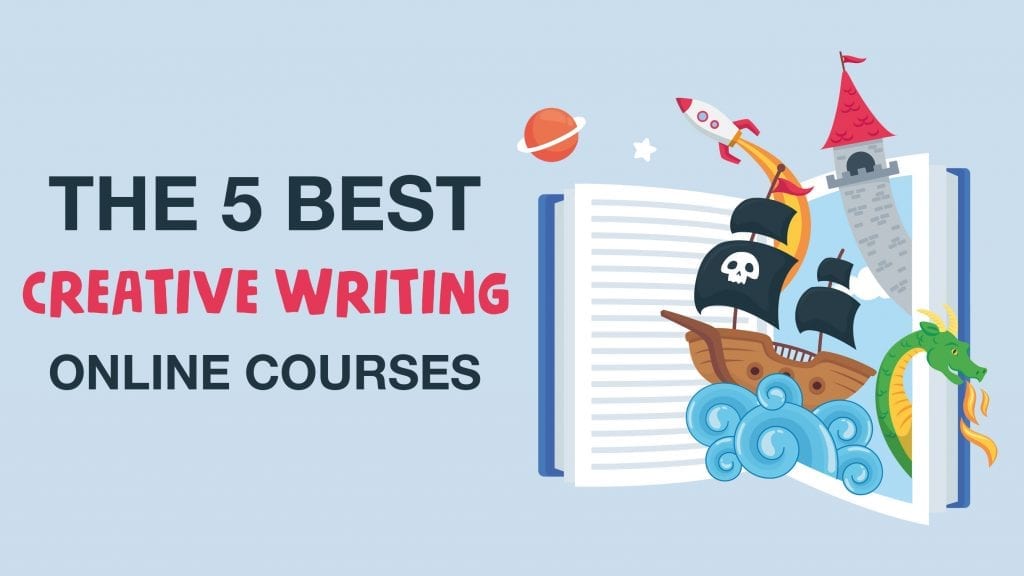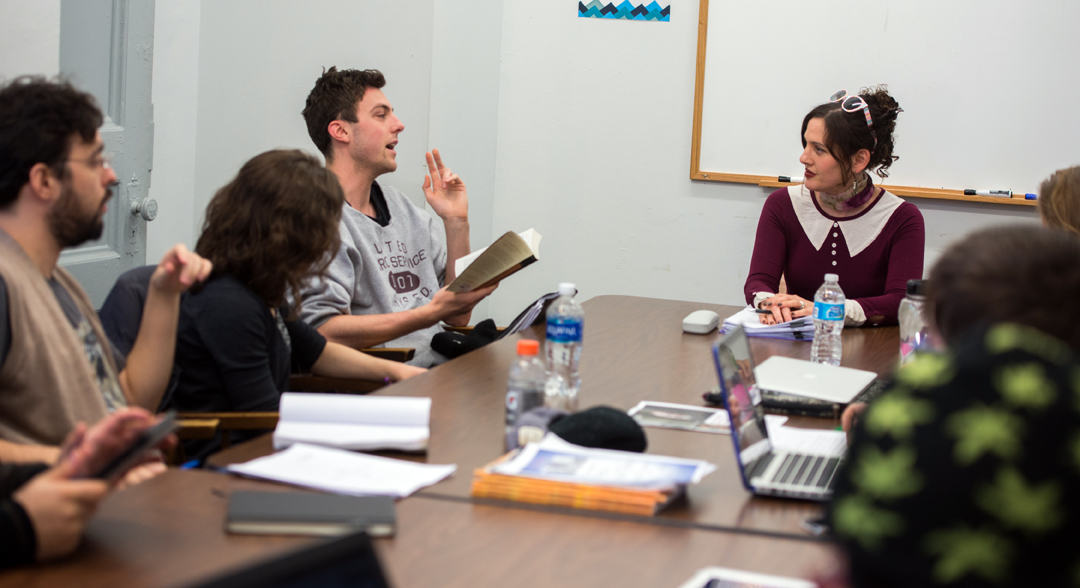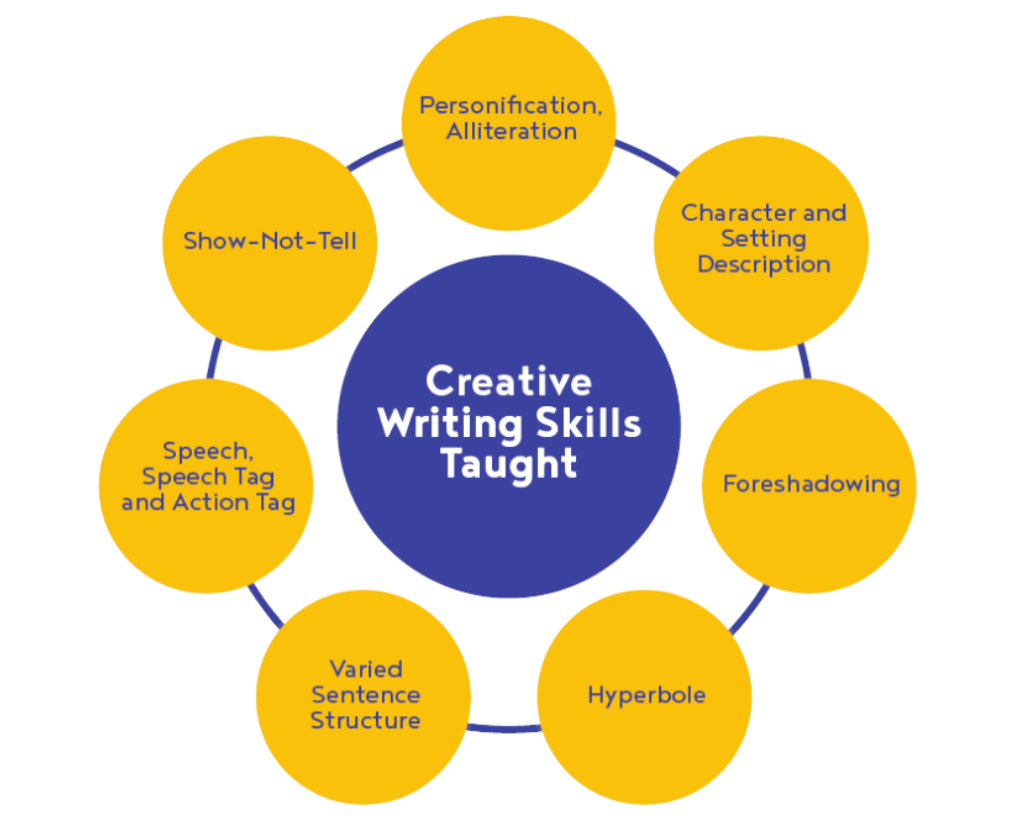What is a creative writing class? It’s a realm where imagination flourishes, where wordsmiths gather to hone their craft and explore the boundless possibilities of storytelling. Whether you’re an aspiring novelist, a budding poet, or simply someone seeking to unleash your creativity, a creative writing class offers a nurturing environment to develop your skills and discover the power of words.
In this comprehensive guide, we’ll delve into the world of creative writing classes, exploring their benefits, key elements, and how they can ignite your writing journey.
Definition of Creative Writing Class
A creative writing class is a learning environment where students engage in the craft of writing imaginative and expressive prose, poetry, or drama.
These classes provide a structured platform for individuals to develop their writing skills, explore their creativity, and enhance their understanding of the literary arts.
Types of Creative Writing Classes
Creative writing classes vary in their focus and objectives, catering to different interests and skill levels. Some common types include:
- Fiction Writing:Focuses on crafting compelling narratives, developing characters, and building immersive worlds.
- Poetry Writing:Explores the use of language, rhythm, and imagery to create evocative and meaningful poems.
- Playwriting:Teaches the principles of dramatic writing, including character development, dialogue, and stagecraft.
- Screenwriting:Provides instruction on writing scripts for film, television, or other visual media.
- Creative Nonfiction Writing:Blends elements of storytelling and factual reporting to create compelling narratives based on real-life experiences.
Benefits of Taking a Creative Writing Class

Taking a creative writing class offers a myriad of benefits that can enhance your writing skills, foster personal growth, and unleash your imagination.
Creative writing classes provide a structured environment where you can explore different writing styles, techniques, and genres. Through workshops, critiques, and discussions, you’ll receive constructive feedback that will help you identify areas for improvement and refine your writing.
Writing Skills Enhancement
* Develop strong storytelling abilities and learn to craft compelling narratives.
- Improve your vocabulary, grammar, and sentence structure.
- Enhance your ability to write in different styles and genres, such as fiction, non-fiction, poetry, and screenwriting.
Personal Growth and Self-Expression
* Unleash your creativity and imagination in a supportive environment.
- Explore your own thoughts, feelings, and experiences through writing.
- Develop a deeper understanding of yourself and the world around you.
– Identify the core elements of a creative writing class

A creative writing class is a space where students can develop their writing skills and explore their creativity. These classes typically focus on the fundamentals of writing, such as grammar, punctuation, and style, while also providing opportunities for students to experiment with different genres and forms.
The purpose of a creative writing class is to help students develop their writing skills and to foster their creativity. By providing a supportive and encouraging environment, these classes can help students to overcome their fears of writing and to develop their confidence in their abilities.
Key components of a creative writing curriculum
The key components of a creative writing curriculum typically include:
- Grammar and punctuation:Students will learn the basics of grammar and punctuation, as well as how to use these elements to create clear and effective writing.
- Style:Students will learn about different writing styles, such as fiction, non-fiction, poetry, and screenwriting, and how to use these styles to create different effects.
- Genre:Students will learn about different genres of writing, such as mystery, romance, science fiction, and fantasy, and how to write effectively in these genres.
- Creative writing exercises:Students will participate in a variety of creative writing exercises, such as writing prompts, freewriting, and peer review, to develop their writing skills.
- Feedback and critique:Students will receive feedback and critique on their writing from their instructor and peers, which can help them to improve their writing skills.
Types of Creative Writing: What Is A Creative Writing Class
Creative writing encompasses a vast spectrum of literary genres, each possessing distinct characteristics and challenges. From the evocative language of poetry to the immersive narratives of fiction and the dramatic interplay of theater, creative writing offers a boundless canvas for imagination and expression.
To delve into the diverse realm of creative writing, let’s explore some of its primary categories:
Poetry
- Characteristics:Heightened language, figurative devices, rhythm, and rhyme
- Examples:Sonnets, free verse, haikus, epics
- Challenges:Crafting evocative imagery, finding the right words, adhering to poetic forms
Fiction
- Characteristics:Storytelling, character development, plot, setting
- Examples:Novels, short stories, novellas
- Challenges:Creating believable characters, developing engaging plots, maintaining narrative flow
Drama
- Characteristics:Dialogue, action, characters, stage directions
- Examples:Plays, screenplays, musicals
- Challenges:Writing compelling dialogue, creating dramatic tension, conveying emotions through characters
Other Types
- Creative Nonfiction:Blends elements of fiction and nonfiction to tell true stories in a compelling way
- Screenwriting:Specifically designed for film and television, focusing on dialogue, pacing, and visual storytelling
- Children’s Literature:Captures the imagination and teaches valuable lessons through stories written for younger audiences
Skills Developed in Creative Writing Classes
Creative writing classes can help students develop a variety of skills, both technical and creative. These skills can be useful in a variety of careers, including writing, journalism, marketing, and teaching.
Some of the technical writing skills that students can develop in creative writing classes include:
- Grammar
- Syntax
- Punctuation
- Style
- Organization
Some of the creative skills that students can develop in creative writing classes include:
- Imagination
- Storytelling
- Character development
- World-building
- Theme
Define the Craft of Storytelling
Storytelling is an ancient art form that has been used to entertain, educate, and inspire audiences for centuries. It is the ability to craft a narrative that captures the imagination and transports the listener or reader to another world.
Storytelling is not simply about recounting events; it is about creating a compelling experience that resonates with the audience on an emotional level. Effective storytelling involves weaving together a tapestry of characters, plot, setting, and theme to create a cohesive and meaningful narrative.
Principles and Techniques for Effective Storytelling
- Start with a strong hook:The opening of your story should immediately grab the reader’s attention and make them want to know more.
- Develop compelling characters:Your characters should be relatable, believable, and have clear motivations.
- Create a vivid setting:The setting of your story should be immersive and help to create a sense of atmosphere.
- Craft a well-structured plot:Your plot should have a clear beginning, middle, and end, with rising action, climax, falling action, and resolution.
- Use vivid language:Your writing should be descriptive and evocative, appealing to the reader’s senses.
Examples of Successful Storytelling
There are countless examples of successful storytelling in various forms, including:
- Novels: To Kill a Mockingbirdby Harper Lee, The Great Gatsbyby F. Scott Fitzgerald, 1984by George Orwell
- Short stories:“The Tell-Tale Heart” by Edgar Allan Poe, “The Gift of the Magi” by O. Henry, “The Lottery” by Shirley Jackson
- Films: The Godfather, The Shawshank Redemption, The Dark Knight
- Plays: Hamletby William Shakespeare, Death of a Salesmanby Arthur Miller, August: Osage Countyby Tracy Letts
- Speeches:“I Have a Dream” by Martin Luther King Jr., “The Gettysburg Address” by Abraham Lincoln, “The Importance of Storytelling” by Chimamanda Ngozi Adichie
The Role of Storytelling in Different Cultures
Storytelling is a universal human experience that has been practiced in every culture throughout history. It plays a vital role in shaping our values, beliefs, and traditions.
- In indigenous cultures:Storytelling is often used to pass down knowledge and traditions from one generation to the next.
- In religious traditions:Storytelling is used to teach moral lessons and inspire faith.
- In modern society:Storytelling is used in everything from entertainment to advertising to education.
Creative Writing as a Form of Expression

Creative writing is not just about crafting stories or poems; it’s a powerful tool for personal expression. Writing allows us to explore our innermost thoughts, emotions, and experiences, giving them a tangible form.
Through writing, we can delve into the depths of our own consciousness, uncovering hidden truths and gaining a deeper understanding of ourselves. It’s a form of self-discovery and self-expression that can be incredibly cathartic and empowering.
Examples of Writers Who Used Writing for Self-Expression
- Maya Angelou:Her powerful autobiographies and poetry explored themes of identity, race, and resilience, drawing from her own experiences.
- Virginia Woolf:Her experimental novels and essays reflected her stream of consciousness and inner struggles, exploring the complexities of female identity.
- Sylvia Plath:Her confessional poetry expressed her intense emotions and personal anguish, becoming a voice for the marginalized and misunderstood.
– Analyze the role of creative writing in fostering empathy and social consciousness.

Creative writing has the unique ability to foster empathy and social consciousness by allowing readers to step into the shoes of others and experience their perspectives. Through vivid storytelling, writers can transport readers to different worlds, introduce them to diverse characters, and challenge their preconceived notions.
By creating emotionally resonant narratives, creative writing can break down barriers of prejudice and promote inclusivity.
Understanding the Power of Empathy
Empathy is the ability to understand and share the feelings of another person. Creative writing can cultivate empathy by immersing readers in the experiences of characters who may be different from themselves. By following the thoughts, emotions, and motivations of these characters, readers can develop a deeper understanding of their perspectives and life experiences.
This increased understanding can lead to greater compassion and a more nuanced view of the world.
Breaking Down Stereotypes and Barriers
Creative writing can challenge stereotypes and break down barriers by presenting diverse and complex characters who defy societal norms. By creating characters who are not easily categorized or labeled, writers can encourage readers to question their own assumptions and biases.
Through these diverse representations, creative writing can promote inclusivity and foster a more accepting society.
Promoting Social Consciousness
Creative writing can also promote social consciousness by raising awareness of important social issues. Writers can use their stories to shed light on topics such as poverty, inequality, environmental degradation, and social injustice. By bringing these issues to the forefront, creative writing can inspire readers to reflect on their own values and take action to create a more just and equitable society.
Identify potential career opportunities related to creative writing, including in fields such as journalism, marketing, advertising, public relations, and education.
Creative writing offers diverse career opportunities that extend beyond traditional literary pursuits. Graduates with a strong foundation in creative writing are highly sought after in various industries, including:
Journalism
Journalists use their storytelling skills to inform and engage audiences. They write articles, news stories, and features for newspapers, magazines, and online publications.
Marketing and Advertising
Creative writers in marketing and advertising craft compelling copy, slogans, and marketing materials that resonate with target audiences. They help businesses connect with customers and promote products or services.
Public Relations
Public relations professionals use writing to manage and shape an organization’s reputation. They write press releases, speeches, and other materials to communicate with the media and the public.
Education
Creative writing educators inspire students to develop their writing skills and foster their imaginations. They teach at all levels, from elementary school to university.
Online vs. In-Person Creative Writing Classes
Creative writing classes can be taken either online or in person. Each format has its own advantages and disadvantages, so it’s important to choose the one that’s right for you.
Online Creative Writing Classes
Online creative writing classes are a great option for people who want to learn at their own pace and on their own schedule. They’re also a good option for people who live in remote areas or who have busy schedules.
- Advantages:
- Flexibility: Online classes allow you to learn at your own pace and on your own schedule.
- Convenience: You can take online classes from anywhere with an internet connection.
- Cost: Online classes are often more affordable than in-person classes.
- Disadvantages:
- Lack of interaction: Online classes can lack the same level of interaction as in-person classes.
- Technical difficulties: Online classes can be disrupted by technical difficulties, such as internet outages or software problems.
- Isolation: Online classes can be isolating, as you’re not able to meet with your classmates or instructor in person.
In-Person Creative Writing Classes
In-person creative writing classes are a great option for people who want to learn from an experienced instructor and get feedback from their classmates. They’re also a good option for people who want to be part of a writing community.
- Advantages:
- Interaction: In-person classes allow you to interact with your instructor and classmates, which can be helpful for getting feedback and learning from others.
- Community: In-person classes can help you to build a community of writers, which can be motivating and supportive.
- Structure: In-person classes provide a structured learning environment, which can be helpful for staying on track and motivated.
- Disadvantages:
- Cost: In-person classes are often more expensive than online classes.
- Scheduling: In-person classes require you to attend at a specific time and place, which can be difficult for people with busy schedules.
- Location: In-person classes are only available in certain locations, which can be a problem for people who live in remote areas.
Choosing the Right Format
The best way to choose the right format for you is to consider your individual needs and preferences. If you’re looking for a flexible and convenient option, online classes may be a good choice. If you’re looking for more interaction and community, in-person classes may be a better option.
Here’s a table that compares the key features of online and in-person creative writing classes:
| Feature | Online Classes | In-Person Classes |
|---|---|---|
| Flexibility | High | Low |
| Convenience | High | Low |
| Cost | Low | High |
| Interaction | Low | High |
| Community | Low | High |
| Structure | Low | High |
Resources for Creative Writers

The world of creative writing is vast and ever-expanding, with countless resources available to aspiring writers. From online platforms to workshops and writing communities, there’s no shortage of support for those looking to hone their craft.
To help you navigate this landscape, we’ve compiled a comprehensive table of resources tailored to the needs of creative writers:
Websites
- The Creative Writing Workshop: An online platform that provides writing prompts, exercises, and feedback from experienced authors.
- Writer’s Digest: A leading resource for writers of all levels, offering articles, workshops, and writing contests.
- Poets & Writers: A nonprofit organization that supports poets and writers through grants, workshops, and a vibrant online community.
Books, What is a creative writing class
- On Writingby Stephen King: A classic guide to the craft of writing, offering practical advice and inspiration from a master storyteller.
- Bird by Birdby Anne Lamott: A humorous and encouraging book that demystifies the writing process and provides valuable insights into creativity.
- The Elements of Styleby William Strunk Jr. and E.B. White: A concise guide to grammar and style, essential for any serious writer.
Workshops
- The Writer’s Center(Bethesda, MD): Offers a wide range of workshops and classes for writers of all levels, led by experienced authors and editors.
- The Loft Literary Center(Minneapolis, MN): A community-based organization that provides writing workshops, readings, and other events.
- The Bread Loaf Writers’ Conference(Middlebury, VT): A prestigious annual conference that brings together renowned authors and emerging writers for workshops, readings, and networking opportunities.
Other Resources
- Writing Communities: Join online or local writing groups to connect with other writers, share work, and receive feedback.
- Mentorship Programs: Seek guidance from experienced authors or writing professionals through mentorship programs.
- Residencies: Apply for residencies at writing centers or retreat centers to immerse yourself in a supportive and inspiring environment.
Tips for Success in Creative Writing Classes
Succeeding in creative writing classes requires dedication, practice, and a willingness to embrace feedback. Here are some tips to help you excel in your creative writing journey:
1. Practice Regularly: Consistent writing is crucial for improving your skills. Set aside time each day to write, even if it’s just for a short period.
2. Read Widely: Immerse yourself in various writing styles and genres to expand your vocabulary and writing perspective.
3. Seek Feedback: Share your work with trusted individuals (peers, instructors, or writing groups) to gain valuable insights and identify areas for improvement.
4. Overcome Writer’s Block: Everyone experiences writer’s block at some point. Don’t give up; try freewriting, brainstorming, or changing your writing environment.
5. Develop Your Unique Style: Experiment with different writing techniques, voice, and perspectives to find your unique writing style that resonates with readers.
6. Participate Actively: Engage in class discussions and workshops, ask questions, and offer constructive feedback to your peers.
7. Build a Portfolio: Showcase your best writing samples in a portfolio to demonstrate your skills and progress.
– Speculate on the future of creative writing.
The future of creative writing is bright. With the advent of new technologies and the ever-changing landscape of the publishing industry, there are more opportunities than ever before for writers to share their work with the world.
Emerging Trends and Technologies
One of the most significant trends in creative writing is the rise of self-publishing. With the advent of platforms like Amazon Kindle Direct Publishing (KDP) and IngramSpark, writers can now bypass traditional publishers and get their work directly into the hands of readers.
This has led to an explosion of new voices and perspectives in literature.
Another emerging trend is the use of artificial intelligence (AI) in creative writing. AI can be used to generate story ideas, develop characters, and even write entire stories. While AI is still in its early stages of development, it has the potential to revolutionize the way that creative writing is created and consumed.
Potential Evolution of Creative Writing
As technology continues to evolve, so too will the art of creative writing. We may see the emergence of new genres and forms of creative writing that are only possible with the help of AI. We may also see a shift towards more interactive and immersive storytelling experiences.
Impact of Artificial Intelligence
The impact of AI on creative writing is still uncertain. Some experts believe that AI will eventually replace human writers, while others believe that AI will simply be a tool that writers can use to enhance their work. It is likely that the truth lies somewhere in between.
AI has the potential to help writers overcome some of the challenges of writing, such as writer’s block and the need to constantly come up with new ideas. However, AI is not yet capable of replicating the human experience, which is essential for creating truly great works of literature.
Potential for New Genres and Forms
The advent of AI has the potential to open up new possibilities for creative writing. For example, AI could be used to create stories that are procedurally generated, meaning that they are unique every time they are played. This could lead to the development of new genres of interactive fiction that are more immersive and engaging than traditional linear stories.
Role of Technology in Enhancing Accessibility
Technology is also playing a role in making creative writing more accessible to people from all walks of life. For example, there are now many online writing communities and resources that can help writers to learn and improve their craft.
Additionally, the rise of self-publishing has made it possible for writers to share their work with the world without having to go through a traditional publisher.
Ethical Implications of Using AI
As AI continues to develop, it is important to consider the ethical implications of using AI in creative writing. For example, it is important to ensure that AI is not used to create works that are harmful or offensive. Additionally, it is important to ensure that AI is not used to replace human writers, but rather to augment their work.
Timeline for Potential Future Developments
It is difficult to say exactly what the future of creative writing holds. However, it is clear that technology will continue to play a major role in the evolution of the art form. Here is a possible timeline for some potential future developments in creative writing:
- 2025:AI-generated stories become more common and sophisticated.
- 2030:New genres and forms of creative writing emerge that are only possible with the help of AI.
- 2035:AI becomes more integrated into the creative writing process, helping writers to overcome challenges and generate new ideas.
- 2040:AI-generated works of literature win major literary awards.
- 2045:AI and human writers collaborate to create new and innovative works of literature.
Table of Key Trends and Technologies
The following table summarizes the key trends and technologies that may impact the future of creative writing:
| Trend/Technology | Impact on Creative Writing |
|---|---|
| Self-publishing | Makes it easier for writers to share their work with the world. |
| Artificial intelligence (AI) | Can be used to generate story ideas, develop characters, and even write entire stories. |
| New genres and forms of creative writing | May emerge that are only possible with the help of AI. |
| Interactive and immersive storytelling experiences | May become more common. |
| Technology enhancing accessibility | Makes creative writing more accessible to people from all walks of life. |
| Ethical implications of using AI | Must be considered as AI continues to develop. |
Bibliography
- The Atlantic: Artificial Intelligence and the Future of Creative Writing
- Wired: The Future of Fiction Is Artificial
- MIT Technology Review: The Future of Creative Writing Is AI-Generated Text
Questions and Answers
What are the benefits of taking a creative writing class?
Creative writing classes offer numerous benefits, including enhancing writing skills, fostering imagination, promoting self-expression, and providing a supportive community for writers.
What are the core elements of a creative writing class?
Core elements include defining the purpose and goals of the class, exploring different types of writing, engaging in writing exercises and activities, and receiving feedback and critique.
What types of creative writing classes are available?
Classes can focus on various genres, such as fiction, non-fiction, poetry, screenwriting, and more.